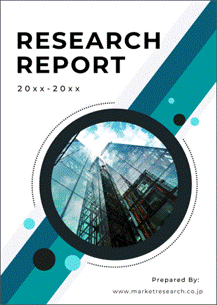 | • レポートコード:D0-MOR-AP0527 • 出版社/出版日:Mordor Intelligence / 2020年4月20日 • レポート形態:英文、PDF、121ページ • 納品方法:Eメール(受注後2-3営業日) • 産業分類:農業 |
| Single User | ¥629,000 (USD4,250) | ▷ お問い合わせ |
| Team User | ¥703,000 (USD4,750) | ▷ お問い合わせ |
| Corporate License | ¥1,110,000 (USD7,500) | ▷ お問い合わせ |
• お支払方法:銀行振込(納品後、ご請求書送付)
レポート概要
| 本調査レポートは、生物殺虫剤の世界市場について調査・分析した資料で、生物殺虫剤の市場概要、動向、セグメント別市場規模、地域別分析、競争状況、企業情報、市場機会分析などで構成されています。 |
Market Overview
The global market for bioinsecticides was valued at USD 1,457.8 million in 2018, and it is expected to reach USD 2,820.1 million by 2024, witnessing a CAGR of 12.34% during the forecast period 2019-2024.
Bioinsecticides hold around half of the global pesticides market. Over 6,000 plant species have been identified, which possess insecticidal properties. In insect pest management, a number of plant products derived from neem, custard apple, tobacco, pyrethrum, etc., have been used as safe insecticides.
Scope of the Report
Bioinsecticides are organic formulations applied to crops to kill insects that feed on them. They contain live bacteria that produce toxins which poison and kill the insects.
Key Market Trends
Fruits and Vegetables Occupy the Largest Share By Application
Among application areas for bioinsecticides, fruits and vegetables occupy the largest share by application. Our analysis shows that lately, many fruits and vegetables have tested positive for the presence of pesticides. This has decreased the demand for chemical pesticide-treated fruits and vegetables. Bioinsecticides have a relatively lower residue level and are a perfect fit for the treatment of fruits and vegetables and hence fruit and vegetable forms the largest application area for bioinsecticides. In general, biocontrol producers represent around 1% of the chemical pesticide sales. Biocontrol agents for weeds are nor marketed. Thus, considering that in the market, there are only biocontrol agents for insects and plant diseases, the percentage of that market share rises to 2%. Optimistic estimates project that sales of biopesticides could reach 10% by 2020.
South America is the Fastest Growing Market for Bioinsecticides
South America is estimated to witness the highest CAGR in the forecast period of 2019-2024. In South America, Bt-based products cover about 40% of the market. Most of the bioinsecticide production in the region is carried out at the local level, with the involvement of local governments and NGOs. South America is projected to experience the fastest growth in the coming five years, driven by rapidly emerging resistance among insect. Brazil has accounted for the largest share of the market in South America in the past five years. Approximately, the 40 commercial mycoinsecticides present in the Brazilian market are provided by 19 for-profit companies. In Brazil, where there is an overwhelming need to improve soil health and crop productivity, microbial science in agriculture is just getting started. Currently, imported products based on Bt are used in Argentina to control Rachiplusia nu and A. gemmatalis. However, their use is not extensive, since the market is dominated by chemical pesticides, particularly pyrethroids. Research on these products is still hampered by the severe economic crisis faced in recent years
Competitive Landscape
The global market for bioinsecticides is highly fragmented with smaller players occupying 76% of the market in 2018.
The major acquisitions taking place between companies to develop bioinsecticides, indicates that the focus on bio-based products are increasing rapidly. The players in the market are investing heavily in this market, to diversify their biological research divisions in the expanding market place.
Reasons to Purchase this report:
– The market estimate (ME) sheet in Excel format
– Report customization as per the client’s requirements
– 3 months of analyst support
1 INTRODUCTION
1.1 Study Deliverables
1.2 Study Assumptions
1.3 Scope of the Study
2 RESEARCH METHODOLOGY
3 EXECUTIVE SUMMARY
4 MARKET DYNAMICS
4.1 Market Overview
4.2 Market Drivers
4.3 Market Restraints
4.4 Porter’s Five Forces Analysis
4.4.1 Bargaining Power of Suppliers
4.4.2 Bargaining Power of Buyers
4.4.3 Threat of New Entrants
4.4.4 Threat of Substitute Products
4.4.5 Intensity of Competitive Rivalry
5 MARKET SEGMENTATION
5.1 Application
5.1.1 Grains & Cereals
5.1.2 Pulses & Oilseeds
5.1.3 Commercial Crops
5.1.4 Fruits & Vegetables
5.1.5 Other Applications
5.2 Geography
5.2.1 North America
5.2.1.1 United States
5.2.1.2 Canada
5.2.1.3 Mexico
5.2.1.4 Rest of North America
5.2.2 Europe
5.2.2.1 Germany
5.2.2.2 United Kingdom
5.2.2.3 France
5.2.2.4 Spain
5.2.2.5 Italy
5.2.2.6 Russia
5.2.2.7 Rest of Europe
5.2.3 Asia-Pacific
5.2.3.1 China
5.2.3.2 India
5.2.3.3 Japan
5.2.3.4 Australia
5.2.3.5 Rest of Asia-Pacific
5.2.4 South America
5.2.4.1 Brazil
5.2.4.2 Argentina
5.2.4.3 Rest of South America
5.2.5 Africa
5.2.5.1 South Africa
5.2.5.2 Rest of Africa
6 COMPETITIVE LANDSCAPE
6.1 Most Adopted Strategies
6.2 Market Share Analysis
6.3 Company Profiles
6.3.1 BASF SE
6.3.2 Bayer Cropscience AG
6.3.3 Bioworks, Inc.
6.3.4 Certis LLC
6.3.5 Corteva Agriscience
6.3.6 Isagro Spa
6.3.7 Koppert Biological Systems
6.3.8 Marrone Bio innovations
6.3.9 Novozymes AS
6.3.10 Valent Biosciences Corporation
7 MARKET OPPORTUNITIES AND FUTURE TRENDS